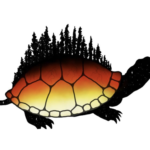Anishinabek Nation leadership sign Agreement-in-Principle for Child Well-Being with Canada
ANISHINABEK NATION TERRITORY (June 4, 2021) — The Anishinabek Nation and Canada signed the Agreement-in-Principle on Anishinabek Child, Youth, and Family Well-Being.
“We are encouraged by this signing of the Agreement-in-Principle,” says Anishinabek Nation Grand Council Chief Reginald Niganobe. “We have always known the best way to take care of our children. We know that keeping our children within our communities surrounded by family, community, culture, and history is what is best for them.”
Grand Council Chief Niganobe signed on behalf of 22 member First Nations and the Anishinabek Nation, and the Honourable Carolyn Bennett, Minister of Crown-Indigenous Relations, and the Honourable Marc Miller, Minister of Indigenous Services, signed on behalf of the Government of Canada via virtual signing ceremony held on Zoom.
“The Agreement-in-Principle is a major step on the road to self-determination and a better future for Anishinabek communities. We are proud to support Anishinabek Nation’s ongoing work with the Anishinabek First Nations to advance their own child well-being system – a system that will help their children and youth to thrive and families to stay together with a strong and proud connection to their communities, culture, traditions and languages,” says the Honourable Carolyn Bennett, Minister of Crown-Indigenous Relations.
The Agreement-in-Principle supports the signatory First Nations in creating their own system and delivering the programs and services required to keep Anishinabek children within Anishinabek families and communities. Signatory First Nations will continue to develop and deliver the programs and services they determine are needed to support Anishinabek families’ well-being.
“We recognize that the best solutions are Indigenous-led, which is why today’s signing of the Agreement-in-Principle is so significant. It is an important step in realizing the Anishinabek Nation’s vision of self-determination, and we remain committed to moving forward in partnership with Anishinabek Nation to advance work on a final agreement that will respect the rights and jurisdiction of participating First Nations over child, youth and family well-being,” says the Honourable Marc Miller, Minister of Indigenous Services Canada.
To date, 22 Anishinabek Nation First Nations have agreed to move forward with the Anishinabek Nation Child Well-Being Law in their communities.
The Child Well-Being Law will ensure the safety and well-being of Anishinabek children and youth, families, and communities. The Law acknowledges, respects, and supports the primary role of parents/guardians, families, and communities in safeguarding and promoting the well-being of Anishinaabe children and youth. It provides for the protection and care of children and youth in circumstances where their parents or guardians have not given or are unlikely or unable to give, that protection and care. The Law also ensures that Anishinaabe traditions, culture, values, and language are maintained. Lastly, the Law ensures that adoptions only occur on the approval of the parent or guardian and the First Nation the child and youth and his or her parents or guardians belong to.
The Law will also establish the legislative framework for the structure of the Anishinabek Nation Child Well-Being system; community agreements; and community standards.
“We are hopeful for our future seven generations as we stand united in our efforts to serve our children, youth and families according to the unique cultural and family systems of each of our Nations,” says Anishinabek Children’s Commissioner Ogimaa Duke Peltier. “I feel privileged to support these 22 First Nations with moving closer to implementing the Anishinabek Child Well-Being Law in their communities and I look forward to other Anishinabek First Nations joining in this journey when they are ready to do so. As always, we will continue to strive for Ngo Dwe Waangizid Anishinaabe – One Anishinaabe Family.”
Signatories were also joined by members of the Child Well-Being Working Group and citizens from across the Anishinabek Nation.
Relevant Links:


